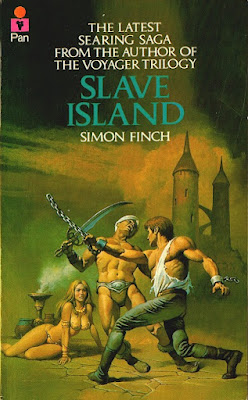The novel opens with Bella Woods completing a short, ill-fated run of a Broadway performance. The experience left her financially devastated, emotionally depleted, and her body abused by the show's perverted producer. In bed with the sleazy promoter, Bella comes to the realization she needs a change and new life goals. An interview with a male model and entrepreneur opens up a world of possibilities: Pro-Wrestling.
Brick hires Bella to join his budding stable of female wrestlers. With these eight ladies, Brick hopes to secure a few local bookings, tap into the market share of male pro-wrestling, and secure a television deal. It's all on the up and up, and Bella rightfully trusts Brick and his tunnel vision.
Bella arrives at Brick's family farm house and meets the other wrestlers. There are women there who use gimmicks like an obese jungle native, a tatted carnival oddity, a royal Queen, a revolting slave, etc. Needless to say, it is a colorful house filled with diversity and different perspectives. Bella's conflict is with a rival ex-Broadway star named Charlotte, that is sleeping with Brick. Her other conflict is with Brick's sister, a domineering lesbian named Cleo, who rapes Bella during her first night at the house.
Through Lady Wrestler's narrative, readers enjoy the rags-to-riches rise of these eight women from bingo halls to a local television program. Fox weaves a multitude of minor plot points that include Brick's financial struggles, Bella's romantic flings with Brick, Cleo's uprising, and the lifestyles of a few minor characters both in and out of the ring. The most satisfying plot point is a lawsuit from the television producers over Bella's indecent exposure on their programming.
After watching the Netflix show GLOW, which fictionally documents the rise and fall of the women's Gorgeous Ladies of Wrestling organization in the 1980s, I found so many interesting comparisons to this 1962 paperback. The characters, the TV deal, the promoter, the lifestyles – all of this is remarkably told by Fox nearly two decades before G.L.O.W. first aired on television in 1986.
If you enjoy pro-wrestling, then you will really enjoy Lady Wrestler. The gimmicks and wrestling personalities were thoroughly enjoyable, and I liked Bella's perspective of being new to the industry. However, Fox was just a serviceable writer, never great but never dull. His writing leaves something to be desired, but nonetheless has enough variance and texture to bring these characters to life, albeit a little wonky on dialogue.
For $1.99 you can't go wrong. Get Lady Wrestler HERE.






















